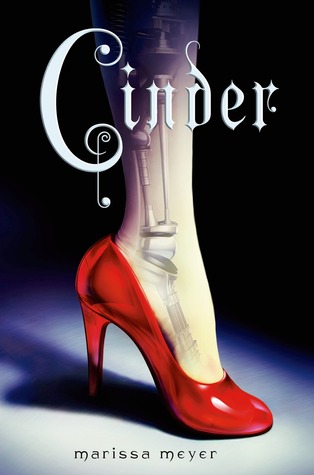I really like books that rewrite fairy tales and mythology.
I remember reading Robin McKinley’s Deerskin
and Spindle’s End and Beauty when I was younger, each of which
rewrote classic fairy tales in interesting ways and that were directed at a
teenage reading audience. John Connelly’s The
Book of Lost Things brought fairy tale characters into one place, in a sort
of dark and interesting way, while books like Eden Robinson’s Blood Sports and Suzanne Collins’s The Hunger Games integrate aspects of
fairy tales and mythology more subtly into their work (Hansel and Gretel in
Robinson’s case, while Collins has said that The Hunger Games was influenced by Theseus and the Minotaur).
I was excited to find out about Marissa Meyer’s Cinder last year, after receiving an ARC
for its sequel, Scarlet (which meant
that I very quickly read Cinder so I
could get to its sequel). Both books are part of a series called The Lunar Chronicles, which relocate
fairy tales such as Cinderella and Little Red Riding Hood to a futuristic
setting. In this future, there are cyborgs and androids, and a lunar colony on
the Moon ruled by a terrifying queen (who’s characteristics seem like they are
borrowed from traditional fairy stories). There is also the existence of an
incurable plague that can infect anyone at any time.
Cinder lives in New Beijing, working as a mechanic in order
to make a profit for her stepmother and stepsisters. Under the laws in this
future setting, cyborgs – humans with robotic components – don’t have the same
freedoms that humans do. Cinder is bound to her stepmother; any money that she
makes goes into her stepmother’s bank account, and she can’t leave the service
of her adopted family. When Prince Kai visits Cinder’s stall at the market,
seeking repairs for his android, Cinder’s life suddenly careens down a new
path. She becomes caught up in the secrets of the palace, privy to the
relationship between Earth and the Moon, and introduced to the possibility that
she may be more than she believed herself to be.
The story follows with the traditional thread of Cinderella,
all the way up to the ball. But instead of losing a glass slipper, Cinder has
much more at stake to lose: her entire mechanical foot. Meyer reinvents the
story, making it different, but the same. The last story that really
re-invented Cinderella was the Drew Barrymore movie Ever After, where the thread of the traditional fairy tale was
completely encased by a new story, with new characters (including Leonardo di
Vinci) and motivations. I liked Cinder for
this reason. It echoed back the traditional fairy tale, while not being afraid
to veer from that original story in order to be more inventive.
The third book in The Lunar Chronicles, Cress, is due out in February.
The third book in The Lunar Chronicles, Cress, is due out in February.





No comments:
Post a Comment